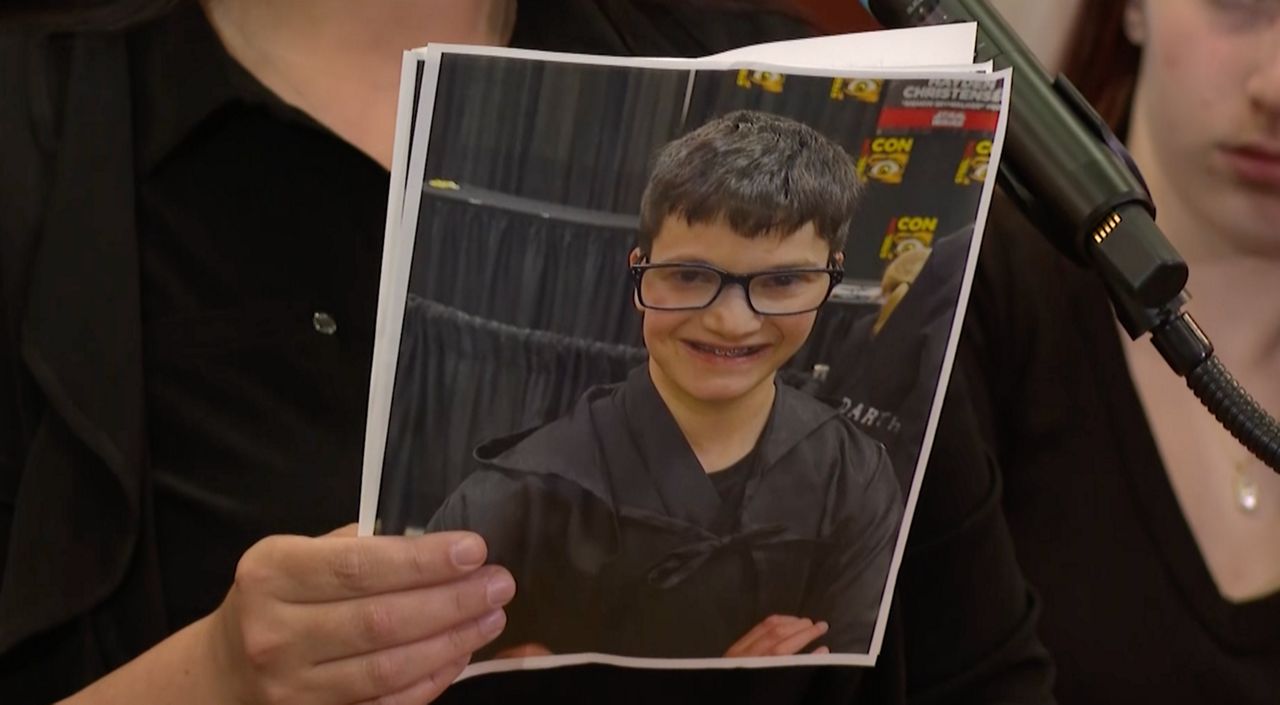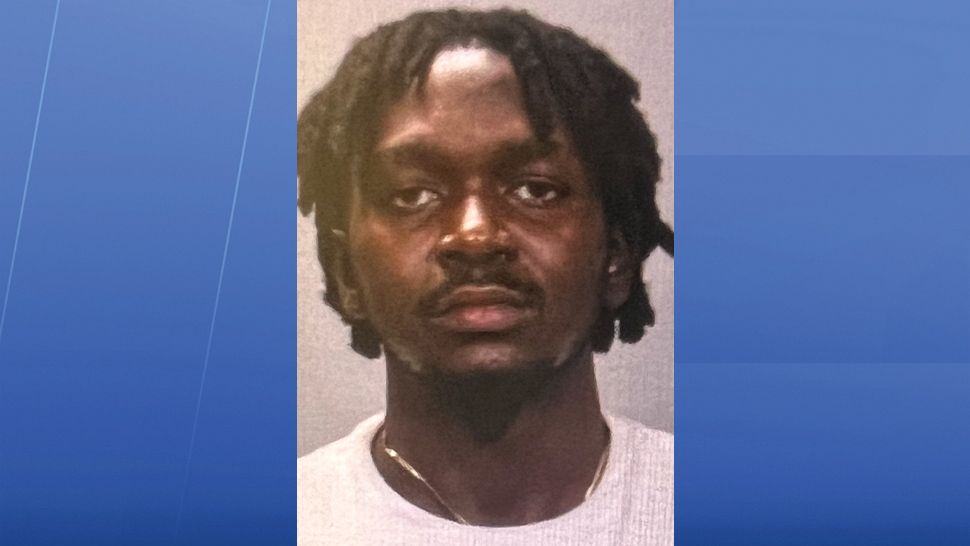COLUMBUS, Ohio — Claps, cheers and conviction echoed through the Oval Lawn as the legal team representing graduate student Ahwar Sultan provided updates on his legal cases.
“Judges have found for the students, they continuously find for the students,” said Jana Al-Akhras, an attorney from New York-based Urena & Associates representing Sultan and Ohio State's Students for Justice in Palestine. “They're realizing that the Trump administration and its policies and particularly what we're deeming the Rubio policy, by our secretary of state, are circumventing the law and they're going outside of due process, and they're making changes that have impacts on real people's lives.”
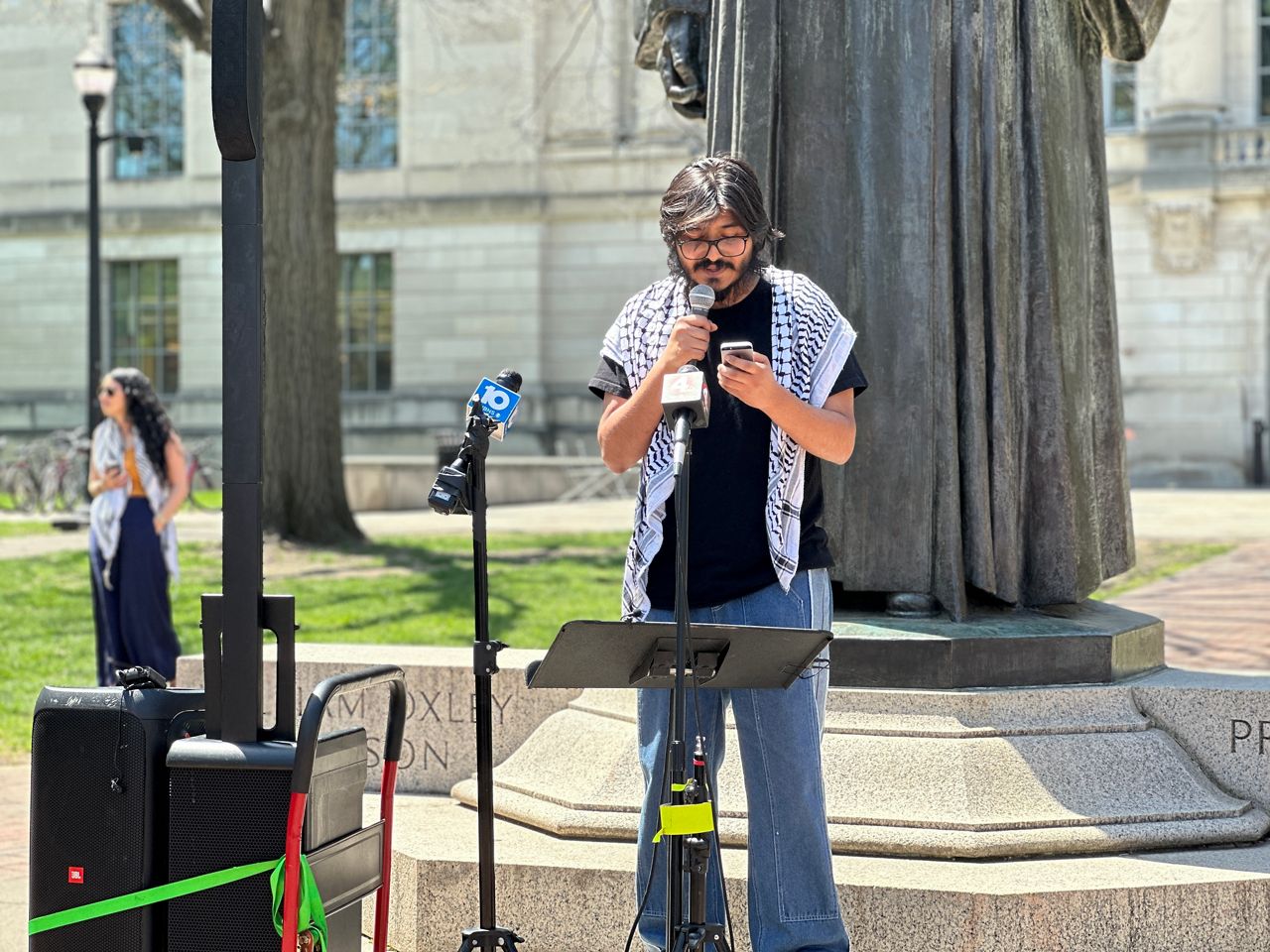
On April 3, the Trump administration terminated Sultan’s F-1 visa status without providing an explanation for the move. Sultan and Ohio State’s chapter of Students for Justice in Palestine are suing the administration alleging his visa was unlawfully revoked due to his participation in Pro-Palestinian activism last year.
“The lawsuit was filed in the U.S. District Court for the District of Columbia and we allege that the Trump administration targeted Sultan for deportation and retaliation for his participation in peaceful pro-Palestinian protests, including a widely covered April 2024 demonstration that happened on this campus back in April on the South Oval,” Al-Akhras said.
Sultan, who is from India, is one of at least 12 Ohio State international students who've had their visas or immigration status revoked by the Trump administration in the last several weeks. Nationwide, the Trump administration claims to have revoked 300 student visas, but according to Inside Higher Ed, the count is closer to 1,800.
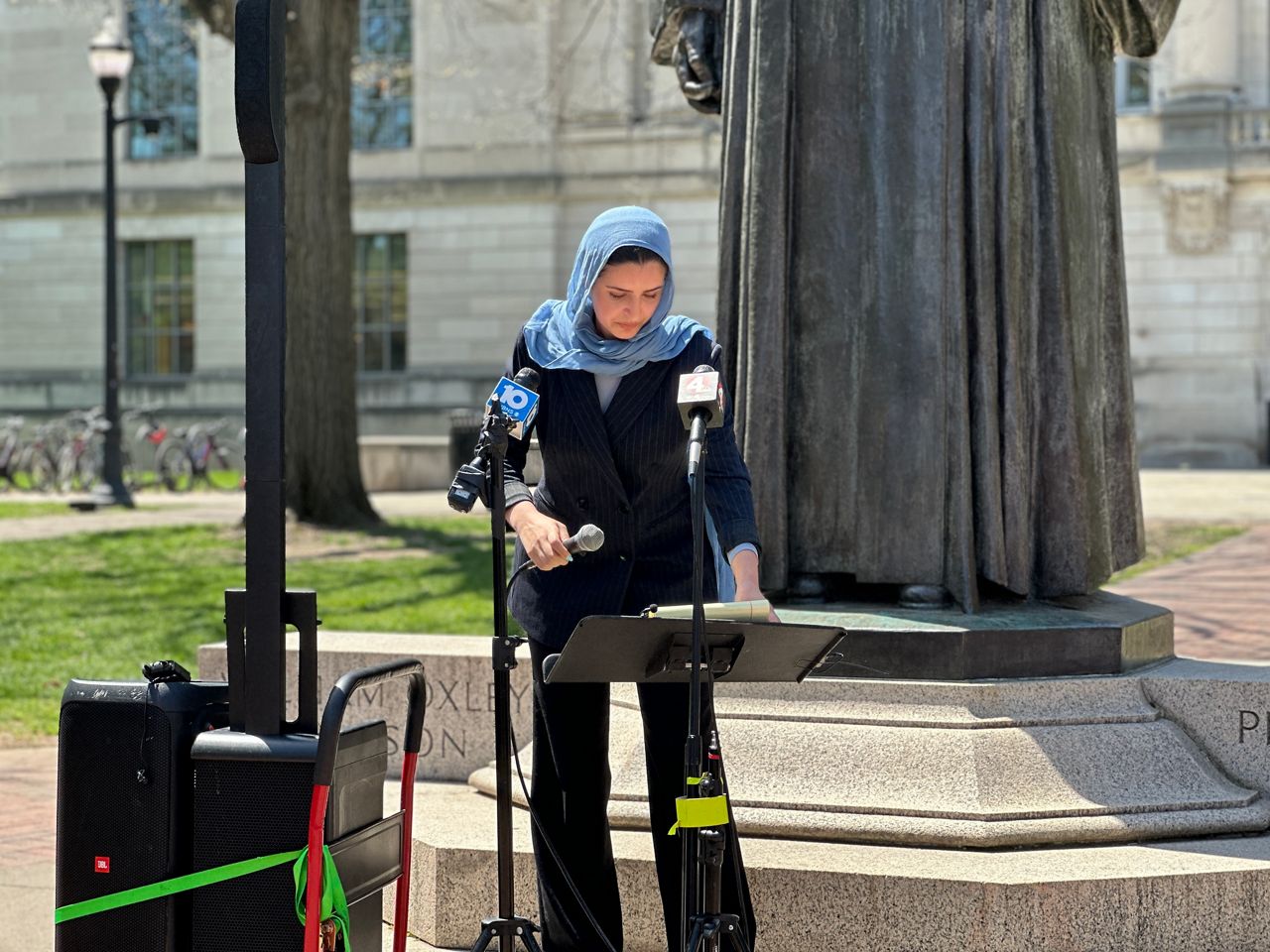
“I was arrested almost exactly one year ago for standing up for Palestine and I believe that because I stood up for Palestine, this year I have been thrown into a legal limbo,” Sultan said. “I now fear abduction and subsequent deportation by ICE. It is true that I risk deportation even as I stand here in front of you, and partly because I stand here in front of you. The risk is still there, even though my case is in court, even if there might be a temporary restraining order."
Sultan said the email he received letting him know his visa was revoked wasn’t clear.
“The exact wording is in the court documents, the complaint that we filed,” Sultan said. “But, it was somewhere along the lines of my name coming up in a criminal records check and I failed to maintain my status and or my visa was revoked.”
Al-Akhras said typically a university decides whether a student is properly maintaining their status.
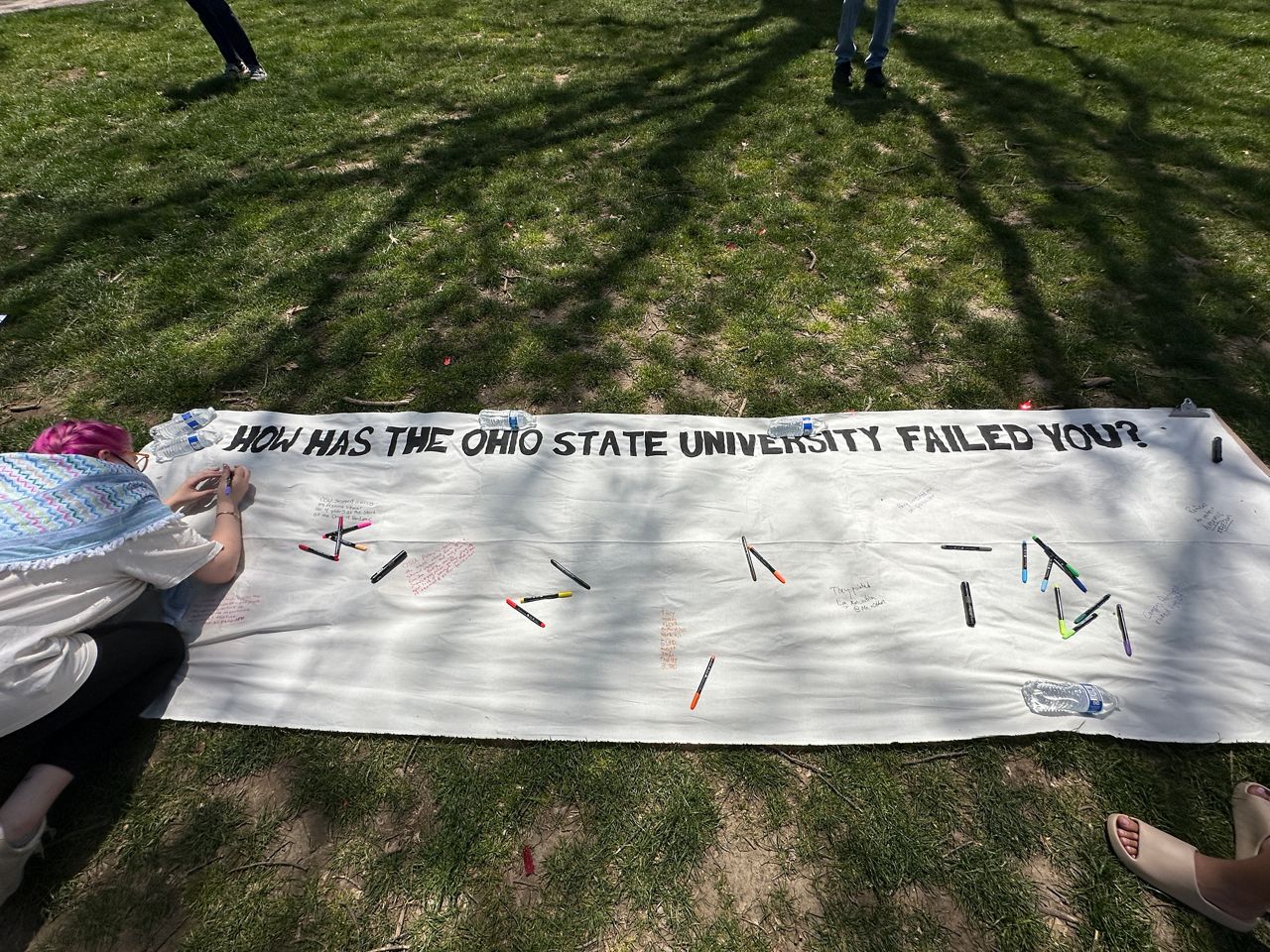
“I would like to make it very clear that this action of terminating status is something so often left to the universities,” Al-Akhras said. “The universities are in the best place to determine whether or not their students are maintaining status, whether it means the course loads or taking employment elsewhere or whatever the case is. This is something that ICE unilaterally overstepped on.”
The speeches called on the university to do more to protect all of its students. Jineen Musa, a leader of the Ohio State Students for Justice in Palestine chapter demanding the “university finally grow a backbone.”
During Musa’s speech, the press conference was briefly interrupted by university police telling her and organizers to stop using the speaker system, otherwise risk being issued a summons for trespassing. OSU has a restriction on sound amplification during scheduled events, outlined in the University Space Standards.
“My university failed me as it has been failing my peers and my teachers,” Sultan said. “I lost faith in my university, my main host in the US. I lost faith in them to stand up for me.”
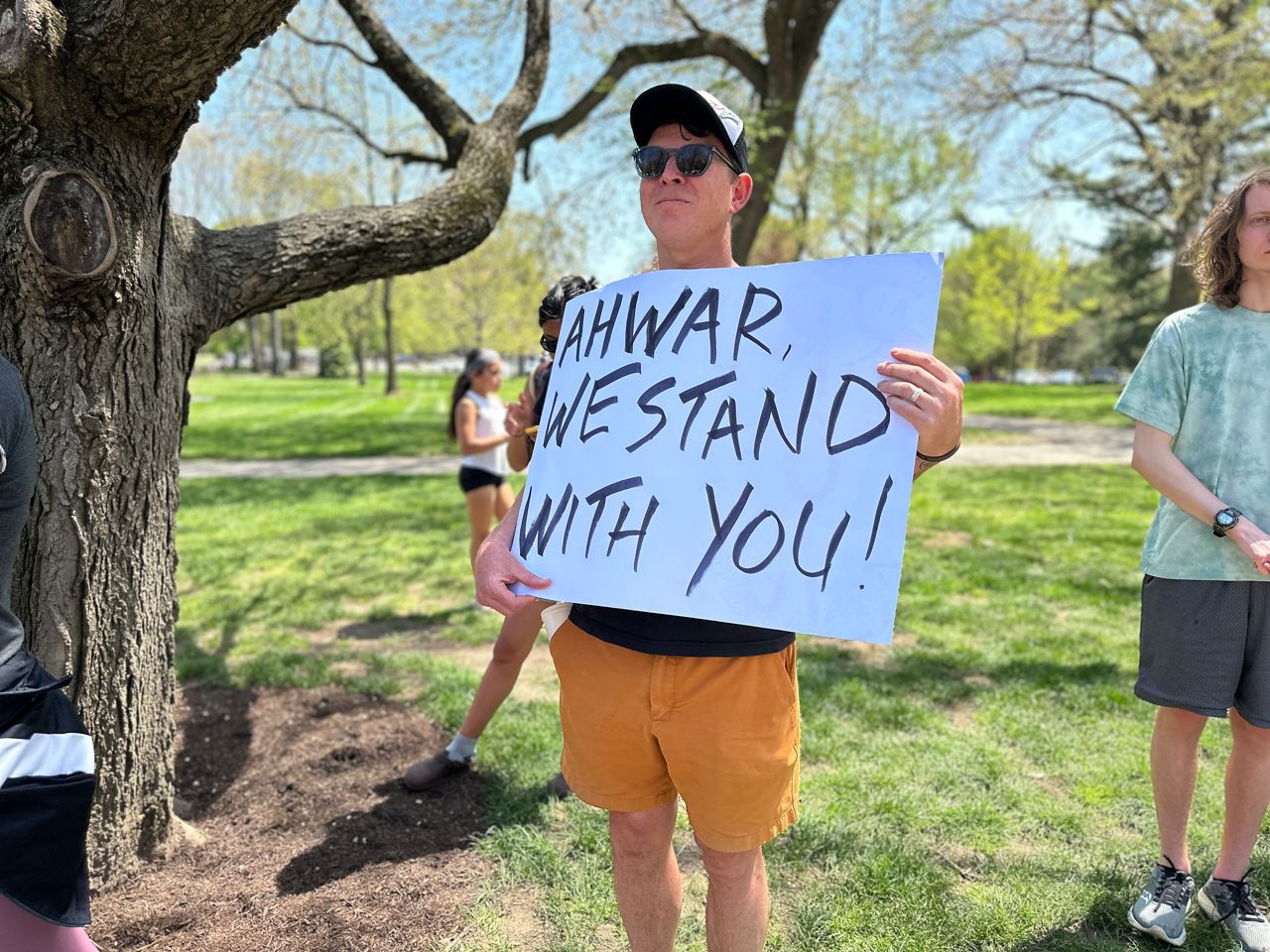
This all happened the same day OSU’s faculty council voted to join the Mutual Academic Defense Compact, a coalition of schools in the Big Ten Academic Alliance standing against President Trump’s attacks on higher education. The movement began at Rutgers University and includes five universities so far, including Rutgers, the University of Nebraska at Lincoln, Indiana University at Bloomington, the University of Massachusetts at Amherst and Michigan State.
Despite fluctuating messages, Sultan remains steady in his conviction and said he aspires to be “courageous in the face of fascism.”
“I am subject to this risk in the first place because I tried to speak up for Palestine,” Sultan said. “I thereby invited upon myself a fraction of the violence that Palestinians have been perennially subjected to.”






